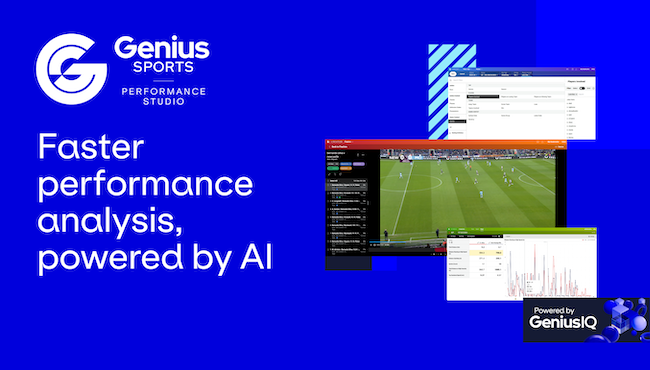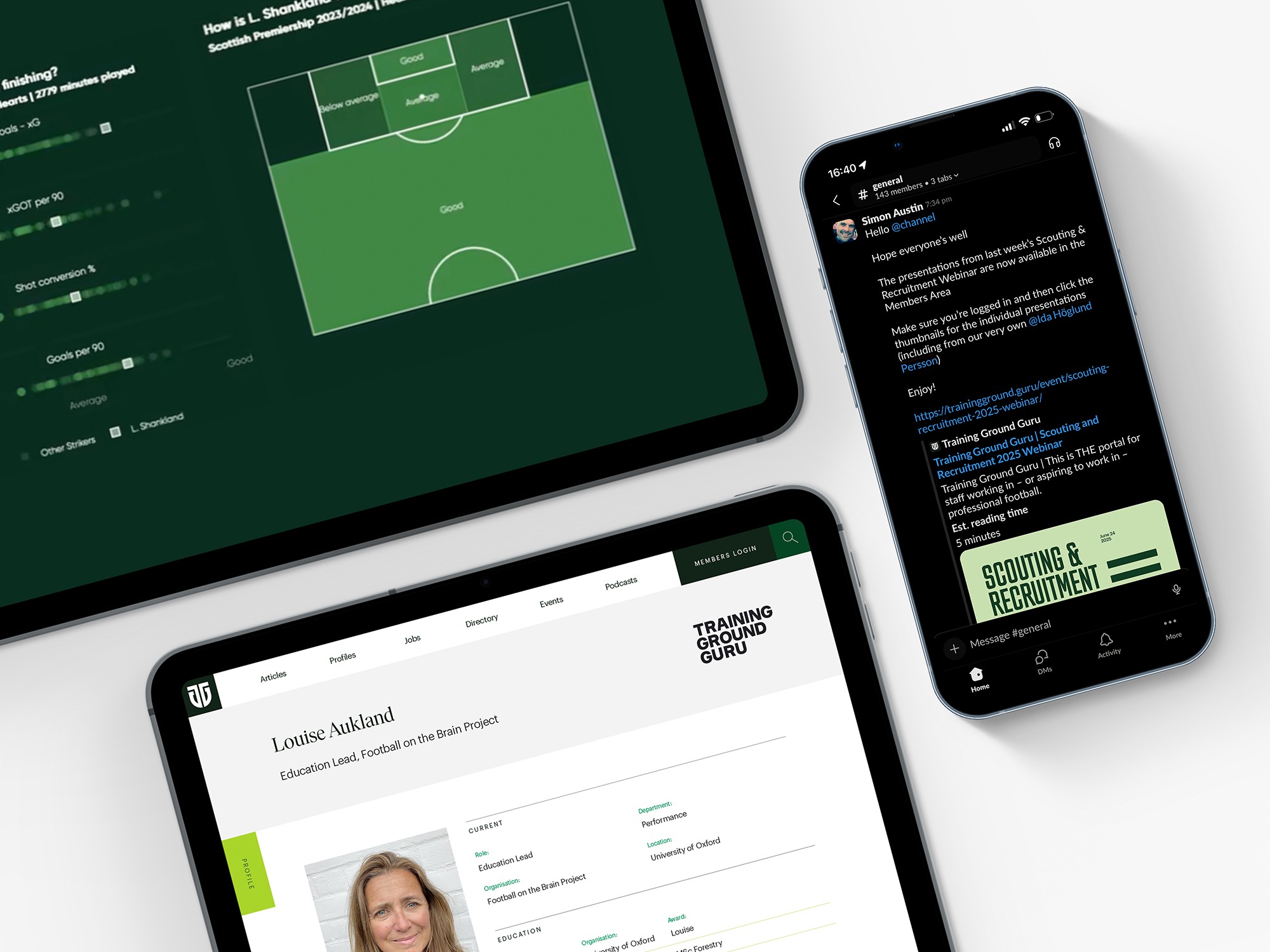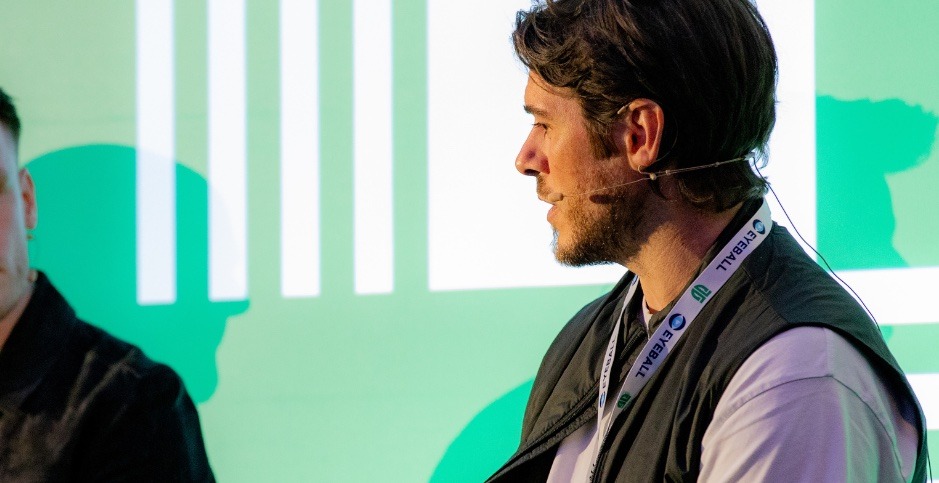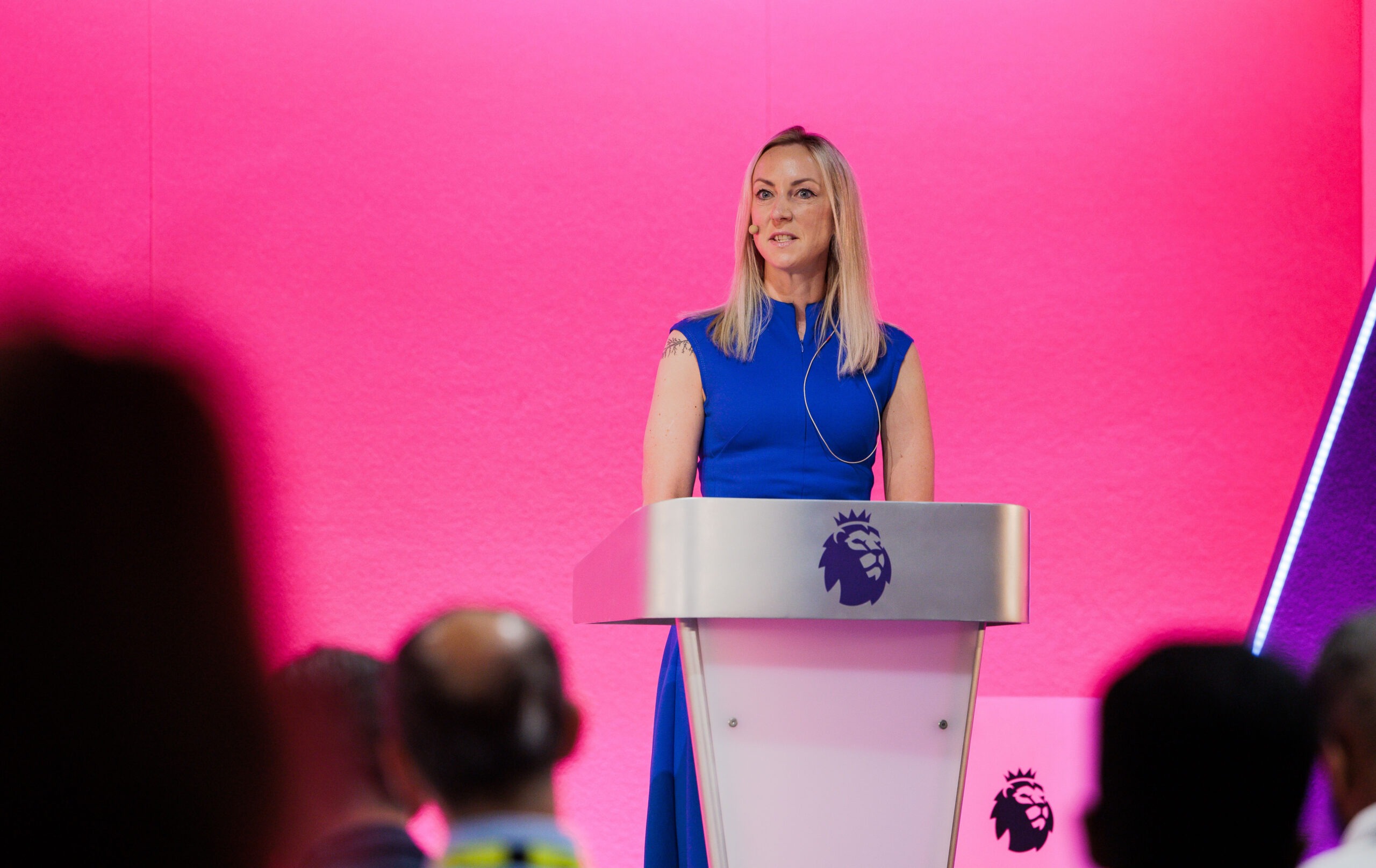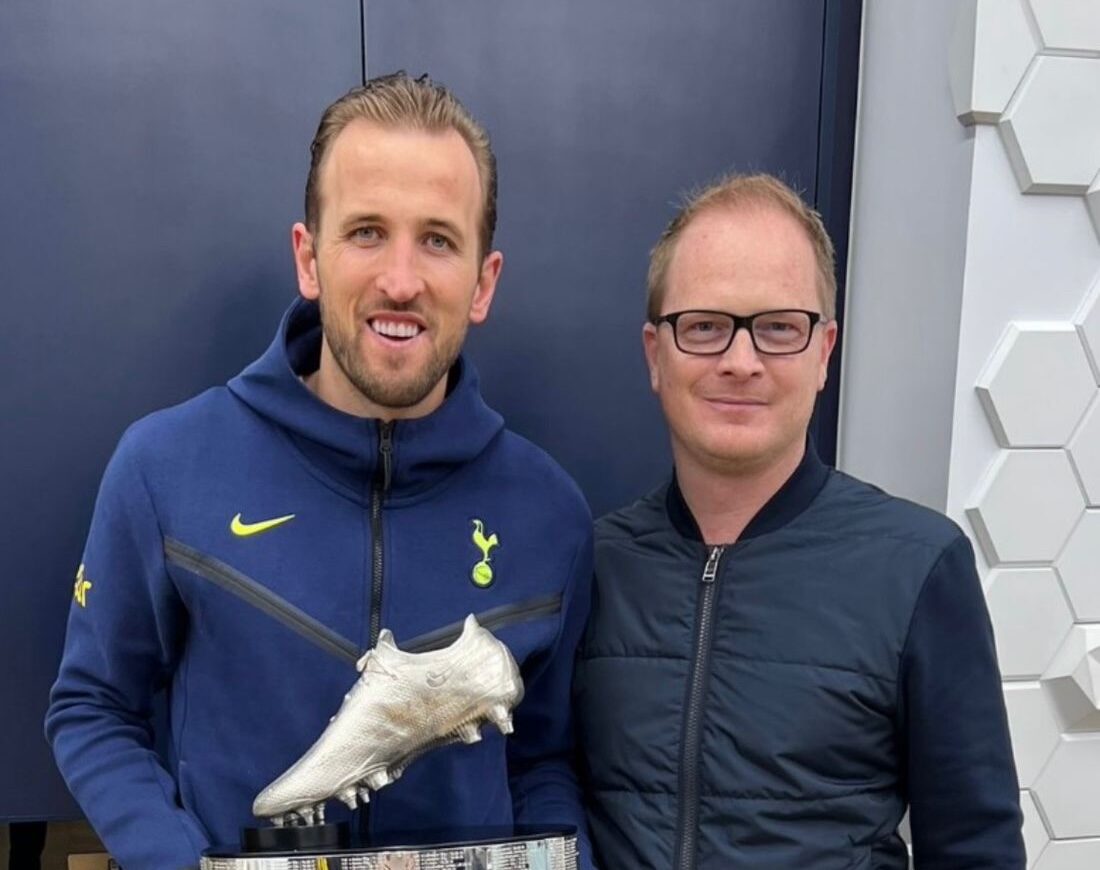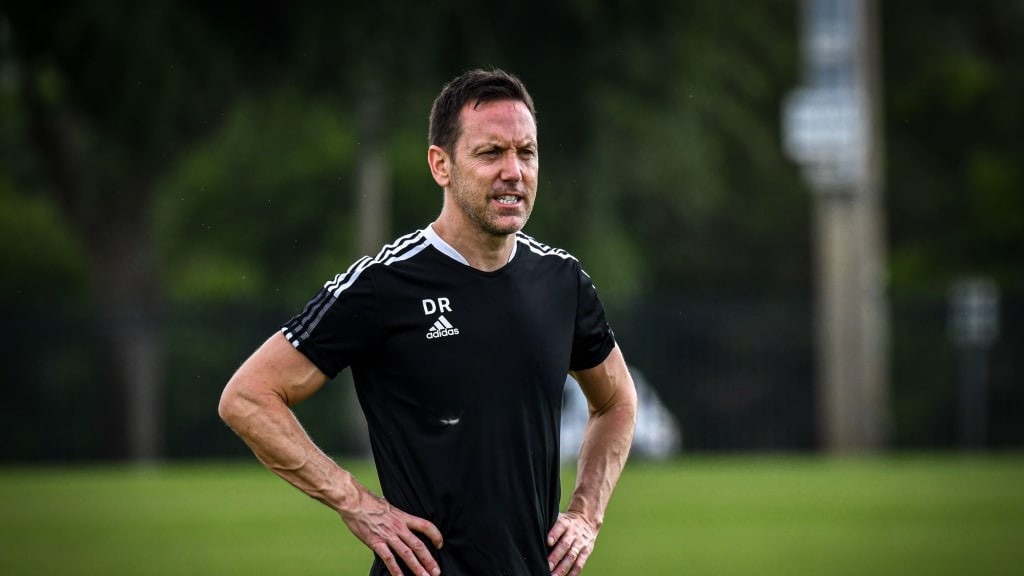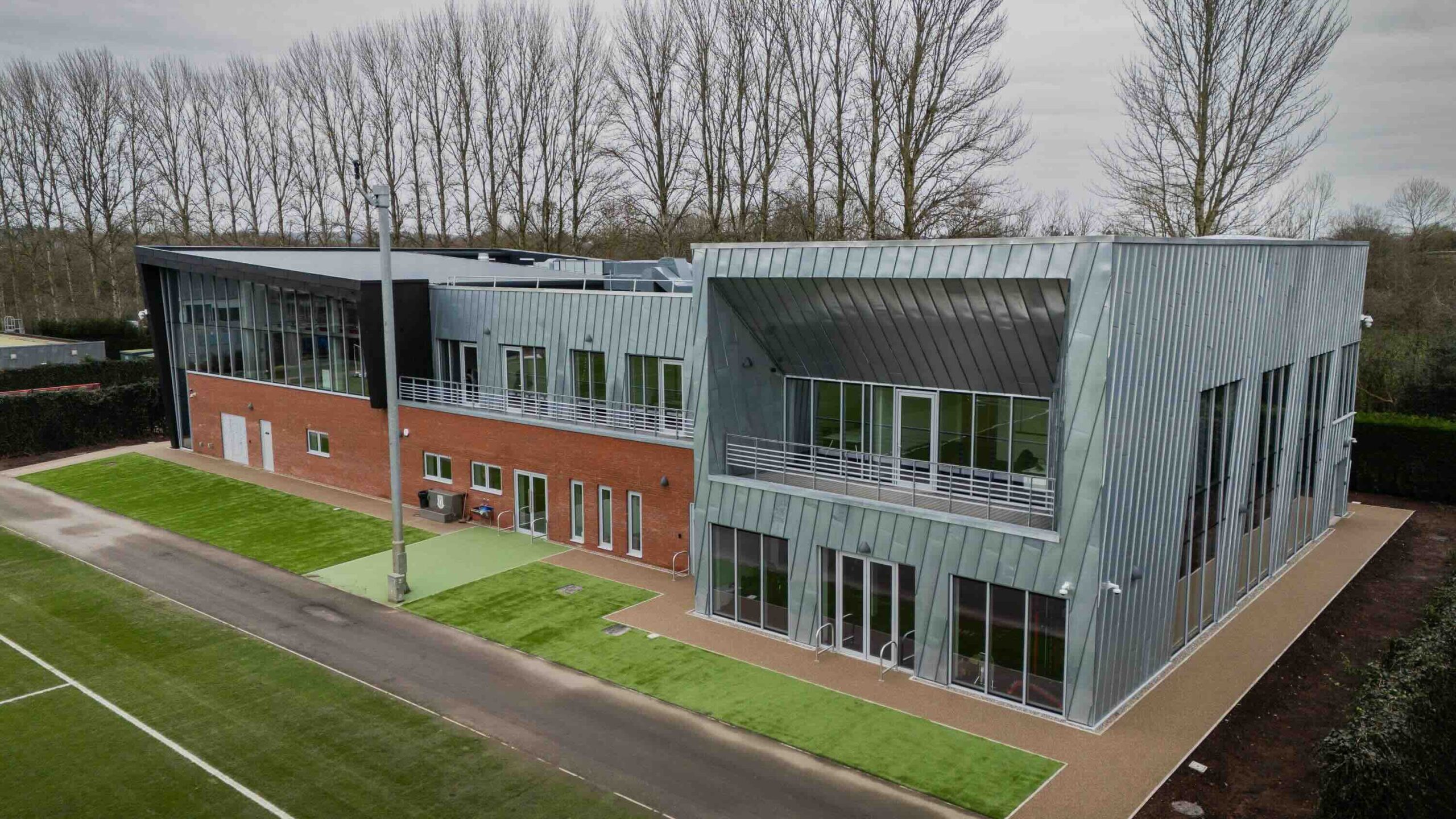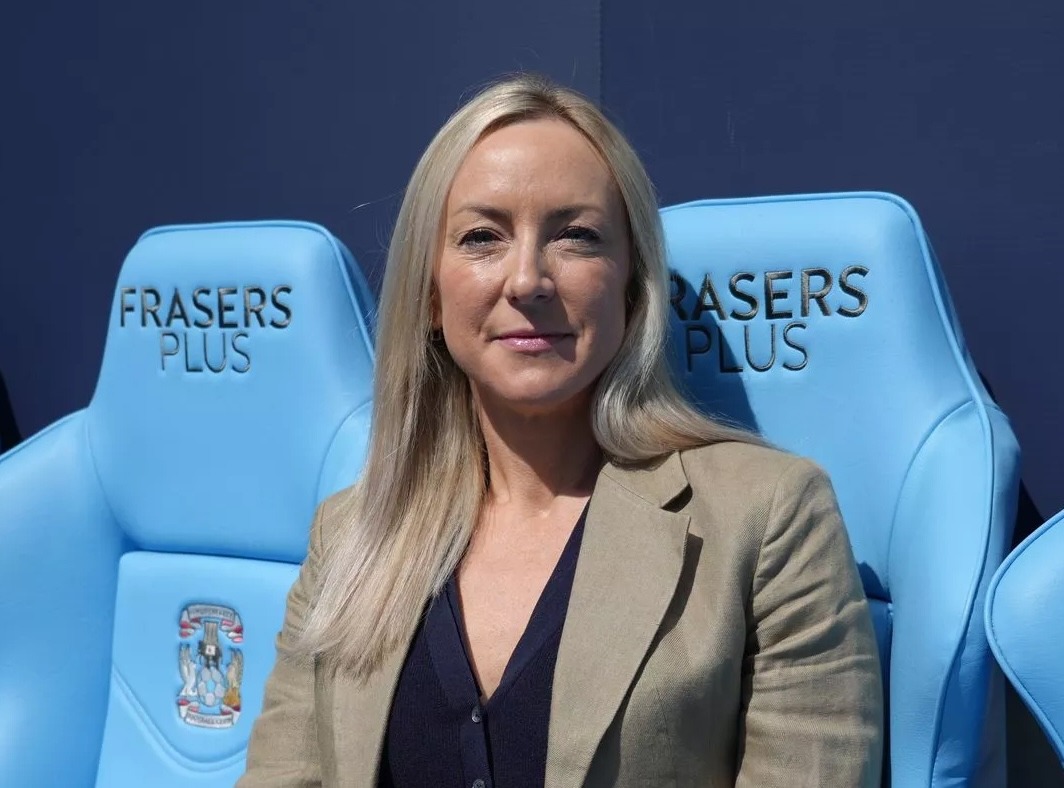
Dr Claire-Marie Roberts: Myth versus reality in elite performance
Written by
Training Ground Guru
July 20, 2025
In the high-stakes world of professional football, the concept of an ‘elite performance culture’ is often sold as a golden ticket to success – a harmonious blend of psychological safety, evidence-based practice and person-centred excellence.
Popular books, leadership seminars and development programmes sometimes paint a picture of a charismatic leader stirring a pot of shared values, transparent roles and continuous improvement to create a winning recipe.
But as someone who has spent a lifetime in elite sport – as an athlete, coach, psychologist and performance leader – Dr Claire-Marie Roberts has stepped forward to challenge this “idealised” narrative.
Become a TGG Member to watch this full presentation by Dr Claire-Marie Roberts – and much more.
Click below to find out more.
Speaking at TGG Live 2024, in a presentation that is now available to TGG Members, the Coventry City Performance Director argued that the reality of professional football was far messier, more volatile and more riddled with conflict than these glossy frameworks suggest.
Roberts said it was time to rethink what an elite performance culture truly means and how it could be achieved.
“One of my biggest bugbears is the pseudosciences that perpetuate in first-team football – in all of football in fact,” said Roberts, who has been Performance Director at Coventry City since February 2024.
“The desire for quick fixes, the power of charismatic marketing: we love to jump on a bandwagon of something that we think we’re going to do differently with very little empirical support or research support.
“It’s like the next big thing, the next project, the next buzzword, the next technology, all being sold to us. Once you get what people term as cultural architects or influencers jumping onto that bandwagon, it’s like a skittle effect where everybody follows suit.
“It’s certainly not evidence-based, certainly not performance-orientated and definitely not science backed. So the environments that we work in are characterised and dominated by pseudosciences.
“My challenge to you is to try and think differently about some of the things we hear and are told about elite cultures. I want you to think critically about some of the information that comes at you from some of the non-fiction books that you might read, some of the development programmes that you might attend, and some of these events, actually.
“Culture is a bit of a buzzword at the moment. I think people have jumped onto this bandwagon. So today, hopefully I’ll give you a hefty dose of reality in relation to some of this information you’re bombarded with.”
Roberts acknowledged that the vision of high performance pedalled in “literature, whether it’s research or somebody putting pen to paper and publishing a book that’s going to be their retirement plan,” was seductive and compelling.
“You’ll hear things like person-centred, I’m sure,” she said. “They will involve coaching excellence, whatever that is. They will involve clear pathways of progression for staff and players.
“They will be characterised by an openness to new ideas, be underpinned by research and development, have shared values and beliefs, and be fair and inclusive.
Sporting environments are complex, they're volatile and they’re ridden with conflict - there's no getting away from that.
Dr Claire-Marie Roberts
“For me, this is a seductive promise of perfection. It’s a seductive promise of harmony. It’s largely empirically unmerited and it’s unlikely to be fulfilled.
“The key point I’m trying to make is that these constituent parts are very idealistic. All of these idealistic things are ultimately unachievable in the way that they’re presented.”
The former Premier League Head of Elite Development outlined why this idealised vision did not match the reality of professional football.
“Sporting environments are complex, they’re volatile and they’re ridden with conflict – there’s no getting away from that,” she said.
“And they are characterised by unique flows of power. That is the cold hard reality of what the majority of us are faced with. Within the environments that we work in, we are after quick fixes always, because we are results driven – certainly at the first team end of the environment.
“And the working processes that generate certainty, that generate scientific robustness, take a long time. So that paradox, that balance, is really quite challenging.
“You know about an elite performance culture that is science backed, that is empirically robust, but you’re unable to achieve that because people are demanding quick fixes, because results are driving that demand.
“Things like transfer windows and player trading create an environment where it’s really very difficult to be player-centric, to be holistic, to be caring, to be human and humane.
“You might have a player that just lands at your club and you’ve got to try and integrate them in no more than half a day. Or you’ve got players outgoing – somebody else has made a decision to sell a player and you see them one morning and then you don’t see them for the rest of the season until your team plays against them.
“That’s not somebody who has left your environment or your club well. And it’s certainly not player-centric behaviour.
“Things like inter-squad competition for places also generate conflict. The hours of work, the relentless fixture scheduling, mean that staff welfare and wellbeing is not a characteristic of the environments that we work in.
“When you’ve got a fixture every three to four days and you’re traveling around the country and you’re not prioritising rest and recovery, there is more often than not a lack of cohesion in teams and tensions. It’s like a rollercoaster.
“So the fact that you think you’re after a harmonious environment because that is an ‘elite performance culture’ is short sighted and perhaps not the reality of what we’re faced with.
“There is no harmony that exists consistently over a period of time in elite high performance in professional sport.”
Roberts, who is a chartered psychologist, also urged the audience at TGG Live to question the wider societal changes that have made honest feedback harder to deliver.
“I’ve seen generations of people come through education and development,” she said. “Some of us have been through the brutal end of that, where feedback is tough, it’s challenging, it’s difficult to take.
“And then a whole generation of individuals have been through a system that rewards participation and perhaps mediocre performances. Nobody’s ever been told no; nobody’s been faced with the challenge of hearing honest and brutal feedback, because it might upset them.
“So we’ve perhaps got a generation of individuals within our clubs now that are not used to receiving feedback in the way it was delivered previously. And I see a trend of people that are bypassing the opportunity to have an open and honest conversation because they’re not confident in delivering it and not confident that the individual can actually take that feedback.
“So we basically end up not saying what we want to say because it’s too difficult. Those societal trends and norms and problems delivering honest feedback create a problem for us in actually establishing an elite performance environment.
So what’s the solution?
First of all, Roberts said football needed to be “honest… that this kind of shining example of elite performance culture is never going to be achievable in the environments that we work in.”
After that, it was about “establishing sustainable attitudes and values that underpin behaviour.”
These attitudes and values should include mutual respect, humility, constant challenge and critical thinking, she said.
“Critical thinking has got to be number one on the list of an elite performance culture,” Roberts argued.
“’Why are we doing this?’ ‘Is it going to generate benefit?’ ‘Who’s best to deliver it?’ ‘Are we confident of the research that underpins this?’ ‘Why don’t we know this?’”
There was also a need for “brutal honesty”, so long as it was coupled with “high empathy.”
“If you ask me a question, you know you will get the honest answer, no matter how difficult it is to deliver or to hear,” Roberts said.
“Brutal honesty, for me, is one of the key constituents of an elite performance environment. I think we’ve all got to be honest with ourselves and acknowledge the nuances of the game that we all know and love and work in.
“And we need to understand that that needs agility and acceptance and we all need to stop being so idealistic about all of the things we think are important.”
Follow Us
For latest updates, follow us on X at @ground_guru

